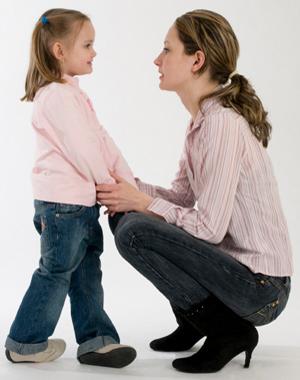Helping Our Children Cope with the Tragedy in Newtown
- Sunday, 16 December 2012 23:15
- Last Updated: Sunday, 16 December 2012 23:45
- Published: Sunday, 16 December 2012 23:15
- Hits: 5054
 This article was contributed by psychologists Michelle Sanders and Karen Bergsman of Scarsdale. The tragedy of the shootings in Newtown, CT has struck a chord with many of us here in Scarsdale. Our communities are strikingly similar. We moved here for the good schools, safe neighborhoods and a solid sense of community. The events in Newtown oppose the natural laws of society where children are not to be harmed and teachers are to be respected. When unexpected tragic events happen, especially involving the murder of children at an elementary school, our initial reaction may be to protect our own children from hearing and talking about these events. In fact, psychological research related to children and trauma indicates that providing information, specific to their development and ages, is important in helping them to cope with frightening and horrific real life events.
This article was contributed by psychologists Michelle Sanders and Karen Bergsman of Scarsdale. The tragedy of the shootings in Newtown, CT has struck a chord with many of us here in Scarsdale. Our communities are strikingly similar. We moved here for the good schools, safe neighborhoods and a solid sense of community. The events in Newtown oppose the natural laws of society where children are not to be harmed and teachers are to be respected. When unexpected tragic events happen, especially involving the murder of children at an elementary school, our initial reaction may be to protect our own children from hearing and talking about these events. In fact, psychological research related to children and trauma indicates that providing information, specific to their development and ages, is important in helping them to cope with frightening and horrific real life events.
When we want to help our children cope with tragedy, it is crucial that we ourselves do a couple of key things to manage our own feelings so that we don't transmit our own complex reactions to our children. Children are especially good at sensing parents' feelings and attitudes and we want to minimize their exposure to our angst. We need to project a sense of calmness, reassurance and competence in our ability to cope with real-life frightening events. As parents, we can be models for our children on how to manage strong emotional reactions to frightening and unexpected events. We should address our own feelings by talking with other adults in our support systems and find private time to express our own grief, sadness, anger and worry.
What to do about the kids:
Listen:
Allow children to tell you what they may have already heard. As difficult as this may be, it allows children an outlet to express some of their feelings and perceptions. It also provides parents an opportunity to clarify myths or rumors. Limit excessive media exposure as much as possible. This is especially difficult due to children's access to the internet and other forms of electronic news. Instead, try to focus on family based discussions. The take home message for children is that there is no right or wrong way to feel and that whatever they feel is "OK" and can be talked about freely.
Inform:
For very young children, up to about four years of age, parents may choose not to discuss the shootings unless the child initiates the topic. If children do bring up the topic, a simple explanation coupled with reassurance should be sufficient. At this age, children not directly related to the trauma will not be able to process a tragedy so far removed from their lives.
For elementary school children, research consistently indicates that children benefit from being told the truth about unexpected, tragic situations. This may seem counterintuitive to parents, but children of this age will likely discuss this among themselves and hear information that may be incomplete, inaccurate or exaggerated. Provide basic, concrete information and be available to answer their questions. We can and should validate the unexpected nature of the shootings as well as the ensuing sadness. It is especially important for adults to avoid becoming overwhelmed by their own emotions in front of their children. It's helpful to have discussions during a non-stressful part of the day.
Middle school children may have strong personal opinions about how and why the shootings happened. Be prepared for children to talk more in depth about the incident. They may also express a desire for specific information. It's important to provide accurate information, although graphic details do not need to be emphasized. Early adolescence is a particularly vulnerable age as children are struggling to make sense of the world and their feelings. Some children may show anger and frustration while others may choose to keep their feelings to themselves.
More than any other group, high school students can grasp the depth and magnitude of the shootings and they are likely to demonstrate a variety of emotions and reactions. Their feelings may vacillate between indifference and intense curiosity. They may express strong feelings of anger and injustice or they may turn their feelings inward and become less verbal. They are also more likely to process their reactions with their peers, however it is especially important for parents to facilitate discussions at home.
Reassure:
For all children, it is important to emphasize that what happened in Newtown is a rare occurrence. Reassure children that schools are safe places and that safety measures are in place to protect them. Discuss the many fun and important activities they do at school and emphasize the many positive aspects of going to school and participating in school activities. Children function best with structure, therefore, routines should be kept as normal as possible. Predictability fosters security.
In the days and weeks to come, parents should continue to observe their children's emotions and behaviors. Significant changes in sleep, appetite, activity level and mood may be indicative of excessive anxiety or emotional distress that should be addressed by a mental health professional.

 Michelle Sanders, Psy. D. has a doctorate in Child Clinical Psychology. Karen Bergsman, Psy. D. has a doctorate in Clinical Psychology. They both reside with their families in Scarsdale and together they direct a private practice known as, "Dr. Moms New York". They can be reached directly at 914-509-5439 or via email at [email protected]. In addition to individual and group therapy, Drs. Sanders and Bergsman are planning several community based educational seminars related to life stressors and the promotion of healthy and positive individual and family functioning.
Michelle Sanders, Psy. D. has a doctorate in Child Clinical Psychology. Karen Bergsman, Psy. D. has a doctorate in Clinical Psychology. They both reside with their families in Scarsdale and together they direct a private practice known as, "Dr. Moms New York". They can be reached directly at 914-509-5439 or via email at [email protected]. In addition to individual and group therapy, Drs. Sanders and Bergsman are planning several community based educational seminars related to life stressors and the promotion of healthy and positive individual and family functioning.






